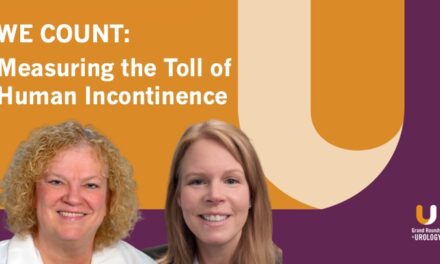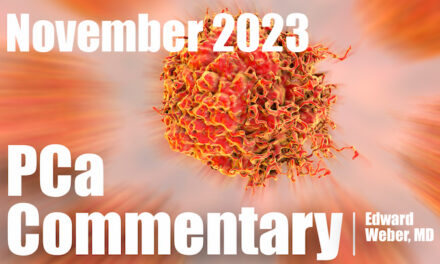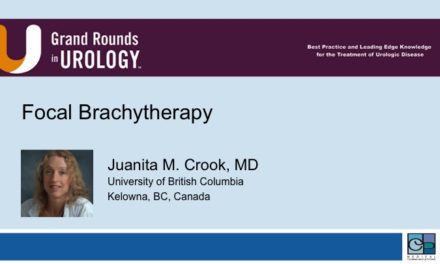Sigrid V. Carlsson, MD, PhD, MPH, presented “Should Screening be Altered Based on Germline and Family History?” during the 27th Annual Southwest Prostate Cancer Symposium conference on October 17, 2024, in Scottsdale, Arizona.
How to cite: Carlsson, Sigrid V. “Should Screening be Altered Based on Germline and Family History?” October 17, 2024. Accessed Nov 2025. https://grandroundsinurology.com/should-screening-be-altered-based-on-germline-and-family-history-2/
Should Screening be Altered Based on Germline and Family History? – Summary
Sigrid V. Carlsson, MD, PhD, MPH, explores the role of genetics in risk-stratified prostate cancer screening and whether genetic insights enhance current protocols. In this 10-minute presentation, Dr. Carlsson shares ongoing trials showing PSA remains the strongest predictor of lethal disease.
Polygenic risk scores (PRS) quantify hereditary predisposition but lack the predictive strength of PSA for lethal disease, limiting their role in broad screening programs. Dr. Carlsson shares studies that reveal that adding PRS to PSA only marginally improves risk prediction, raising questions about their practical utility.
AI and advanced modeling could eventually refine screening approaches by combining genetic, clinical, and imaging data. Genetic testing is valuable for individuals with strong hereditary predispositions or known germline mutations, but not necessary for all men with a family history.
About the 27th Annual Southwest Prostate Cancer Symposium:
Presented by Program Chairs Nelson N. Stone, MD, Richard G. Stock, MD, and William K. Oh, MD, this conference educated attendees about advances in the management of localized and advanced prostate cancer, with a focus on imaging, technology, and training in the related devices. It included a scientific session, as well as live demonstrations of surgical techniques. You can learn more about the conference here.
ABOUT THE AUTHOR
Sigrid V. Carlsson, MD, PhD, MPH, is the Division Head of the Clinical Epidemiology of Early Cancer Detection at DKFZ German Cancer Research Center in Heidelberg, Germany. Her research focuses on developing risk-stratified approaches to screening, diagnosis, treatment, and follow-up.





